New Scientist covers the latest developments in science and technology that will impact your world. New Scientist employs and commissions the best writers in their fields from all over the world. Our editorial team provide cutting-edge news, award-winning features and reports, written in concise and clear language that puts discoveries and advances in the context of everyday life today and in the future.
Elsewhere on New Scientist
Food for thought • We have ethical options to replace industrial farming, but it won’t be easy
New Scientist International Edition
Floods follow drought in Italy
Analysis Medicine • Trial shows how mRNA therapies could revolutionise medicine People with a rare genetic condition had fewer symptoms after getting an experimental mRNA drug, and the technology could treat many disorders, says Michael Le Page
Sunlight could cool a charged atom to its coldest possible limit
Fake alien message sent to Earth to mimic first contact
Privacy leaks from seized US phones • Nude photos and bank details were found on devices sold by US police forces via auction site
5000 novel species live in deep-sea mining area
Test using capital letters easily sorts AIs from humans
Babies can identify people’s faces from just 4 months old
Field notes Eddleston Water, UK • How a UK river serves as a natural lab for flood research Work at Eddleston Water has provided ecological benefits worth millions of pounds, finds Jason Arunn Murugesu
Ultrasound pulses trigger a state like hibernation in mice and rats
Compostable plastic fails to break down after a year at sea
Does covid-19 affect pregnancies? • The coronavirus has been linked to adverse pregnancy outcomes, but vaccines help to keep mothers and babies safe, reports Michael Marshall
Can SARS-CoV-2 infect a fetus during pregnancy?
Migrating bats use Earth’s magnetic field to navigate
Analysis Artificial intelligence • Who will control AI-created ‘digital twins’? Negotiation over the use of AI between the US actors’ union and Hollywood studios could determine the viability of acting as a career, finds Jeremy Hsu
Nuclear clocks could be the best timepieces in the universe
Good way to avoid bite of common insect is to sit still
Man with paralysis walks by activating brain and spine implants with his mind
Astronomers race to observe rare nearby supernova
Junk food diet may disrupt our slumber
Tumble dryers have a microfibre problem
Gulls choose meals based on what they see people eat
Really brief
It’s not easy being green • Amphibians could help cure our ills, from diabetes to fungal infections – if they don’t go extinct first, says Matthew Gould
No planet B • Cheesy does it I thought there was no way around cheese being an environmental and ethical disaster, but a new approach to dairy farming has proved me wrong, says Graham Lawton
Equatorial ice
Your letters
Earth’s beating blue heart • A book that casts the ocean as an extraordinary giant engine helps us grasp its complex physics and its key role in climate change, finds Graham Lawton
Stupid but smart • Being a genius won’t stop you staring at an eclipse or letting an argument keep you from finding a planet, finds Richard Lea
New Scientist recommends
The games column • Depth not breadth In Tin Can, you have to fix a spaceship’s disintegrating escape pod – or die. Though the whole game takes place in a single space, exploring its extraordinary detail is a real joy, says Jacob Aron
Mental muscle • We are finally getting to grips with how exercise boosts your brain and how we can all work out smarter to reap the benefits, say Catherine de Lange
HACK...

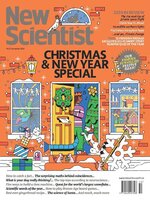 Dec 14 2024
Dec 14 2024
 Dec 07 2024
Dec 07 2024
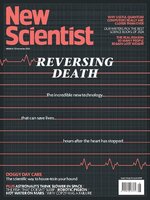 Nov 30 2024
Nov 30 2024
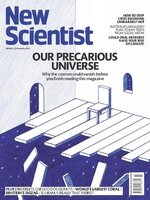 Nov 23 2024
Nov 23 2024
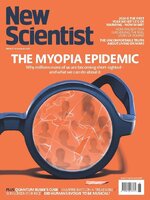 Nov 16 2024
Nov 16 2024
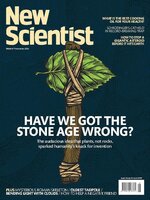 Nov 09 2024
Nov 09 2024
 Nov 02 2024
Nov 02 2024
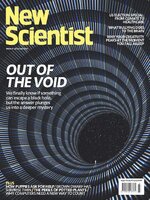 Oct 26 2024
Oct 26 2024
 Oct 19 2024
Oct 19 2024
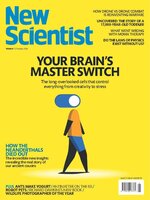 Oct 12 2024
Oct 12 2024
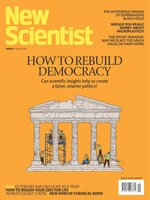 Oct 05 2024
Oct 05 2024
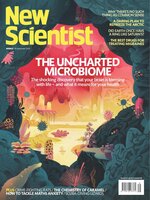 Sep 28 2024
Sep 28 2024
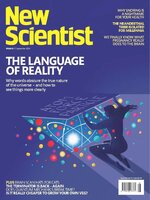 Sep 21 2024
Sep 21 2024
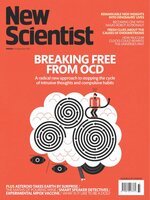 Sep 14 2024
Sep 14 2024
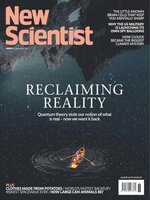 Sep 07 2024
Sep 07 2024
 Aug 31 2024
Aug 31 2024
 Aug 24 2024
Aug 24 2024
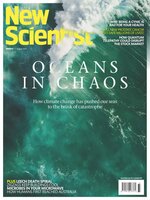 Aug 17 2024
Aug 17 2024
 Aug 10 2024
Aug 10 2024
 Aug 03 2024
Aug 03 2024
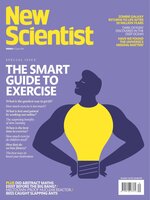 Jul 27 2024
Jul 27 2024
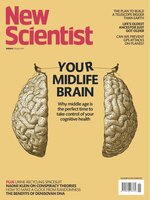 Jul 20 2024
Jul 20 2024
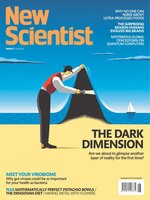 Jul 13 2024
Jul 13 2024
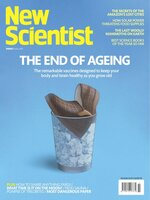 Jul 06 2024
Jul 06 2024
